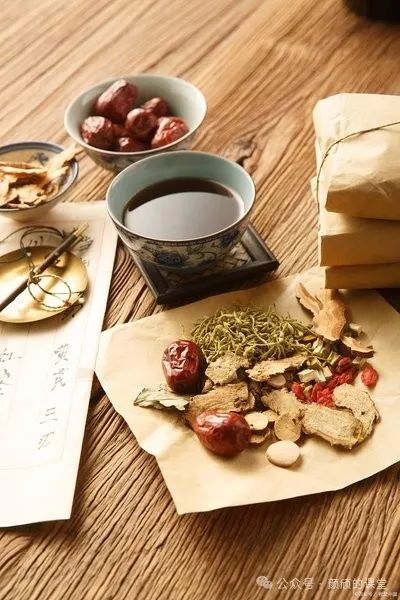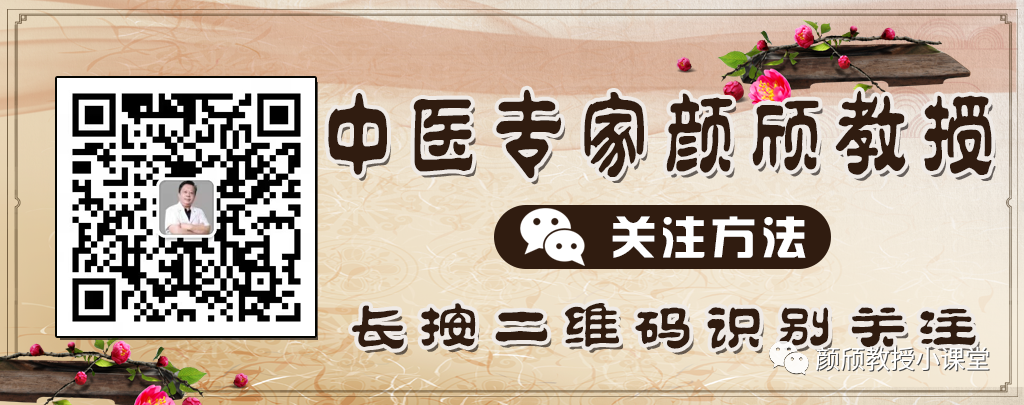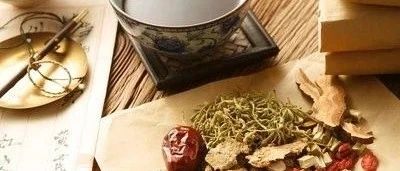Hello everyone, I am Dr. Yan Qi, a traditional Chinese medicine practitioner. Today, I would like to introduce a formula that can treat various gynecological diseases, such as uterine fibroids, endometritis, and ovarian cysts, etc.This formula is recorded in Zhang Zhongjing’s “Jin Gui Yao Lue”, known as Dang Gui Shao Yao San (Angelica and Peony Powder). For abdominal pain in women, Dang Gui Shao Yao San is the main treatment. In simple terms, any pain or disease occurring in a woman’s abdomen can be effectively addressed by this formula.
The formula includes: Dang Gui (Angelica), Chuan Xiong (Szechuan Lovage), Bai Shao (White Peony), Fu Ling (Poria), Bai Zhu (White Atractylodes), and Ze Xie (Alisma). These are six simple and common herbs, but how do they effectively address abdominal pain in women? Women’s diseases can generally be divided into two types: one type is related to Qi, such as thyroid and breast diseases, which are Qi-related disorders. The other type is concentrated in the lower abdomen, primarily due to disharmony of blood and fluids, as a woman’s menstrual flow is a combination of blood and fluids. Both blood and fluids are Yin, and Yin substances tend to descend, which is why gynecological diseases in women are concentrated in the lower jiao (lower abdomen).

For abdominal pain in women, the two fundamental principles of TCM treatment for pain are: one is “no nourishment leads to pain,” and the second is “no flow leads to pain.” Dang Gui Shao Yao San can address both of these issues, harmonizing blood and fluids. First, it addresses the issue of blood deficiency, as women often experience excessive blood loss throughout their lives, leading to blood deficiency which can cause numerous diseases. Dang Gui is the primary herb for nourishing blood, which can replenish liver blood, as the liver stores blood and is considered a woman’s blood reservoir. Additionally, Dang Gui has the effect of invigorating blood and resolving stasis. Blood is Yin, and nourishing blood must also nourish Yin; Bai Shao assists Dang Gui in this regard. Bai Shao can soften the liver, nourish Yin, and restrain blood, helping to retain blood and prevent excessive consumption of Qi and blood. Bai Shao also has the added benefit of alleviating acute pain.
The second issue is to resolve the problem of stagnation. To address stagnation, we need to invigorate blood and resolve stasis, and Chuan Xiong can invigorate Qi, invigorate blood, and resolve stasis. These three herbs address the blood issue, resolving both nourishment and flow. Next, we need to address the issue of fluids. Excessive dampness in the body can obstruct the flow of Qi and blood; when dampness increases, blood decreases, leading to blood stasis. Conversely, blood can also affect fluids. Therefore, we need to harmonize blood and fluids. In the formula, Fu Ling promotes the transformation of dampness in the middle jiao (spleen and stomach), while Ze Xie promotes the transformation of dampness in the lower jiao (kidneys and bladder). Once dampness is eliminated, the flow of Qi and blood becomes smooth. To thoroughly address the source of dampness, we need to treat the spleen. The spleen is the source of dampness, and all dampness and swelling belong to the spleen. Bai Zhu is used to strengthen the spleen and eliminate dampness, while also utilizing the good fluids in the body to transform into body fluids. Bai Zhu and Fu Ling complement each other, enhancing the spleen and stomach’s ability to transform and absorb, as the spleen and stomach are the source of Qi and blood production. When the spleen and stomach are healthy, they continuously supply Qi and blood to the body, which also helps resolve blood issues.
Dang Gui Shao Yao San is a formula that replenishes the body’s blood and fluids, opens the blood pathways, and expels all the turbid water and blood from the body, leading to the resolution of diseases. However, it is important to note that it is not suitable for everyone; a physician’s diagnosis and treatment are still necessary.
That concludes today’s topic. If my explanation has been helpful to you, feel free to leave any questions in the comments!


